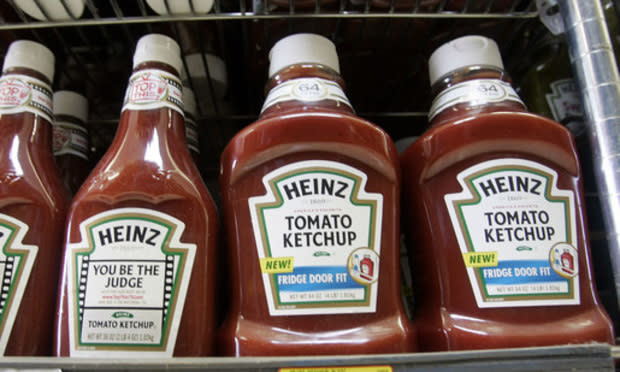EU Lists $20BN in Proposed Tariffs on US Products Over Boeing Dispute

Ketchup is one of the items listed by the EU for proposed tariffs on U.S. exports. Photo: Paul Sakuma/AP
The European Commission has published a list of $20 billion-worth of U.S. exports to the EU that could be hit with tariffs in retaliation for illegal subsidies for aircraft maker Boeing.
The products listed include aircraft, chemicals, car parts and food products, including frozen fish, citrus fruits and ketchup.
“European companies must be able to compete on fair and equal terms," Cecilia Malmström, the EU's trade commissioner, said in a statement. "The recent WTO ruling on U.S. subsidies for Boeing is important in this respect. We must continue to defend a level playing field for our industry.
“We do not want a tit-for-tat,” she added. “While we need to be ready with countermeasures in case there is no other way out, I still believe that dialogue is what should prevail between important partners such as the EU and the U.S., including in bringing an end to this longstanding dispute."
She said the EU remains open for discussions with the U.S., provided such conditions are carried out without preconditions and "aim at a fair outcome".
Last week, the U.S. threatened tariffs on $11 billion-worth of European goods over subsidies to Europe's aircraft maker Airbus.
EU businesses have until the end of May to give their views on whether the products listed by the EU on Wednesday should be included on the definitive list of products to be hit with penalty duties.
The total value of the list of products is $20 billion but the World Trade Organization (WTO) has yet to give its opinion on the total value of the damage the subsidies have caused to European industry.
The publication of the list follows a ruling by the WTO on April 11 that the U.S. had failed to remove tax breaks and other subsidies for Boeing, despite earlier judgments that they were illegal.
At an earlier stage in the dispute between the EU and the U.S. over subsidies to their aircraft makers, the EU argued that U.S. subsidies had caused $12 billion in damages to European industry, suggesting that the total amount of U.S. products to be hit by the sanctions could be closer to the lower figure.
In April, the WTO ruled that a number of tax breaks and programmes offered at the federal and state level were illegal under global trade rules and should have been removed. These included a Washington State tax programme, South Carolina job tax credits, procurement contracts with NASA and the U.S. Department of Defense, research and development programmes, as well as the U.S. Foreign Sales Corporation and Extraterritorial Income Exclusion schemes.



